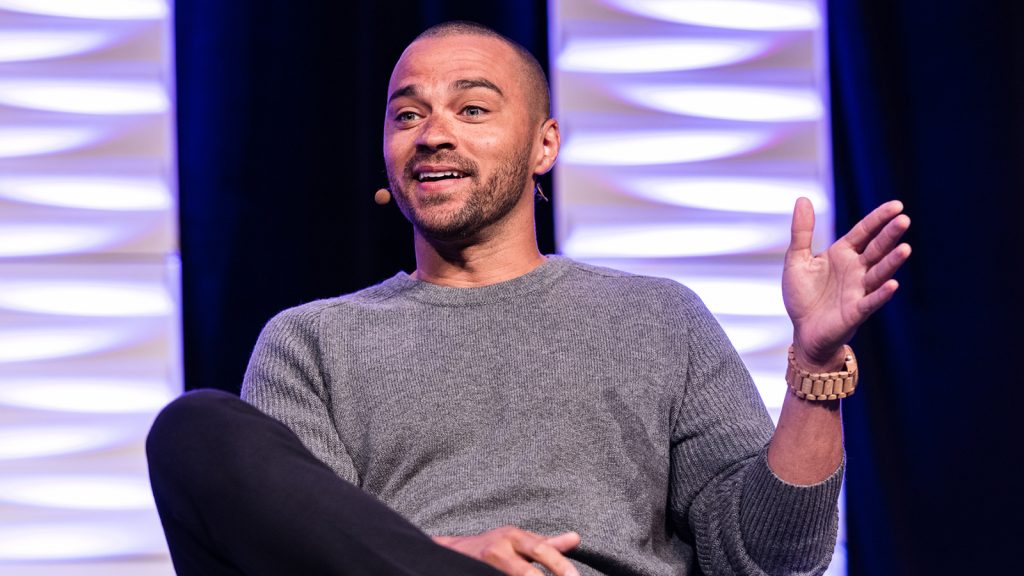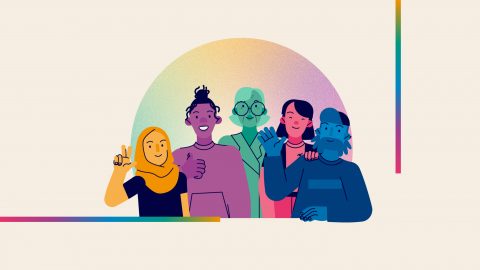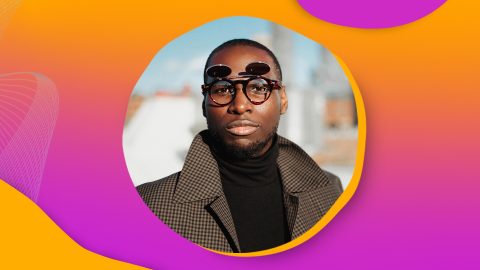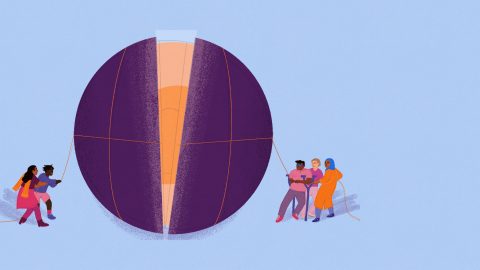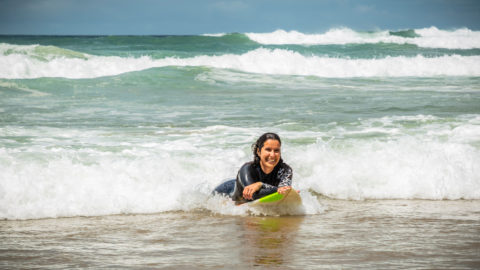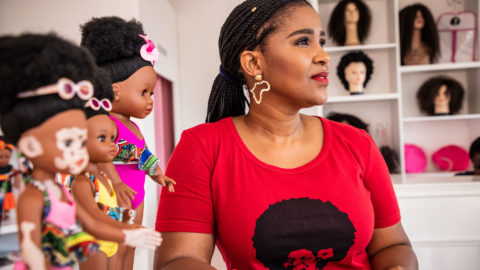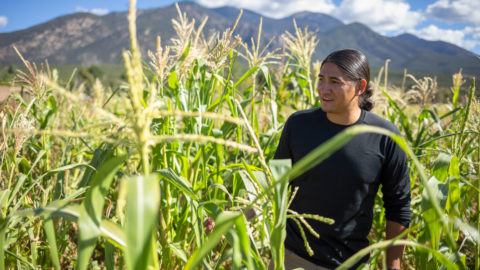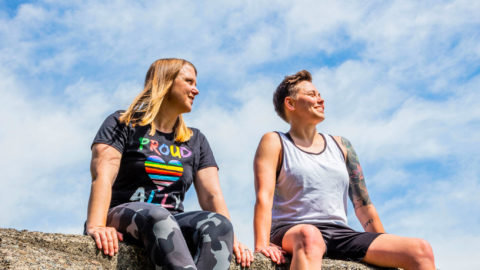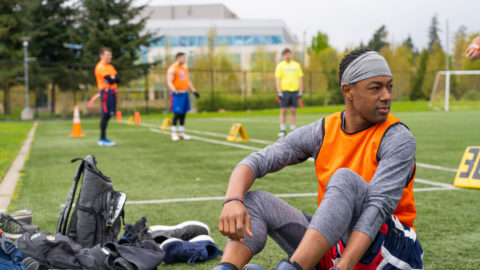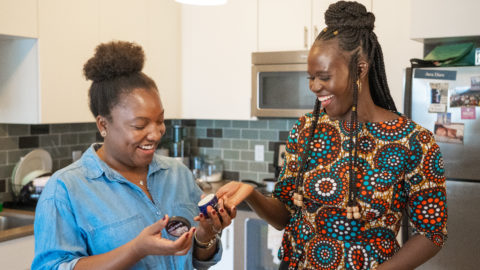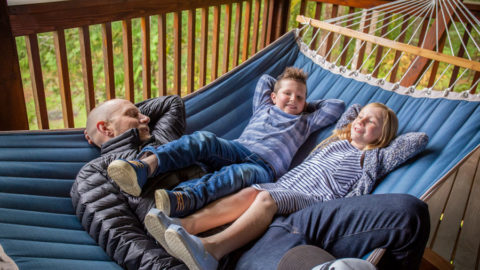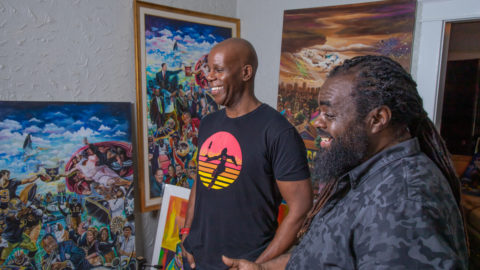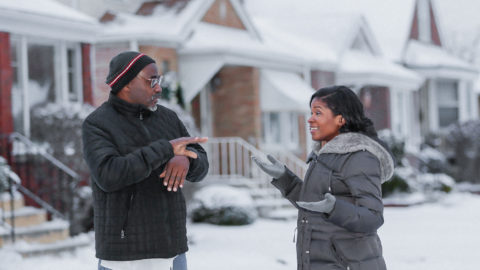‘Stay Woke’ with Jesse Williams
The television star and civil rights advocate on how we are in a new era of communication and the ways acting and activism go hand-in-hand
Actor, producer, and activist Jesse Williams visited Microsoft to talk with employees who attended the Blacks at Microsoft (BAM) Conference about his driving conviction to use his voice for social change in the world.
After Williams spoke with the group, he sat down with two employees for a brief chat. Watch the behind-the-scenes interview, and follow along with an abridged transcript.
Megan Carpenter: You’re an actor and also an activist. How do you think about those two different identities and roles? Do they come together? Do you consider them separate?
Jesse Williams: For me they’re both. I am an activist who happened to take up acting, so it doesn’t mean I’m going to lop off my arm in order to continue in this career.
That informs my day-to-day experiences. It informs probably, almost certainly, my choices in terms of roles that I take or communities I want to be involved with.
I narrated two documentaries this year, both about President Obama [“The Obama Years: The Power of Words“]. And I produced two documentaries last year, one “Stay Woke” about the Black Lives Matter movement, and another Norman Lear docuseries [“America Divided“] where I tackled the school to prison pipeline with the help of the Advancement Project.
So that stuff is inherently around social justice, human rights, and just kind of general citizenship issues, so yeah I can’t pretend that those things aren’t connected.
Megan Carpenter: You talked about the idea of “knowing that you know nothing.” One of the things we talk to our employees about is this idea of growth mindset, learning that you’re going to make mistakes, you’re going to fail, you can take risks, and it’s okay.
So what’s a time where you took a big risk, you failed, and what did you learn from it?
Jesse Williams: I think sometimes you get a little anxious to just do, and it doesn’t mean you’re going to do the right thing—you just want to feel like you’re doing.
And I bit off more than I could chew on a project and thought I could just figure it out in the process and keep improving it, but I was spread way too thin, wearing too many hats. And it did not result in success; it resulted in a lot of frustration and self-reflection. And, yeah, I consider it a failure, but I wouldn’t change that because I learned a tremendous amount.
The lesson I take from that is to have confidence in yourself, have faith in yourself, but there is nothing that can replace preparation, and a gut feeling is a gut feeling.
Megan Carpenter: Who are some young people that really inspire you right now?
Jesse Williams: I think of a lot of the young people in the movement right now for black lives. I think of Brittany Packnett, Netta. I think of the Dream Defenders as a whole, the leadership around Standing Rock, and NoDAPL.
People who are figuring out ways to galvanize not only support from their core group, but also a whole set of layers of ally-ship that is born from geographical and cultural places that are completely different.
And being able to articulate their positions in multiple languages, to multiple communities in person, verbally, but also on social and in print. We’ve entered a new chapter in communication.
So I think that there’s a lot to be gleaned from the Black Lives Matter movement, advances in the women’s movement, in the LGBTQ efforts to take back their personhood in terms of the way policy is made.
Conner Kutsunai: Not that being an actor and activist isn’t enough, but if you could come to Microsoft, what would you want to work on, and what would your title be?
Jesse Williams: Wow, I would want to work on storytelling. I would want to work on a range of things. As you may gather, I need to be doing six things at all times.
But it would be around storytelling, narrative making. Figuring out ways to make inroads and create a runway for disenfranchised communities to learn the language and become literate in technology, in coding, in engineering.
So many of us grow up thinking you only have two options, and it’s a real privilege to know you have one hundred. And that’s based in patriarchy, and things influence people without even knowing it. So anything I can do to contribute to kind of broadening the options and the inroads for folks.

